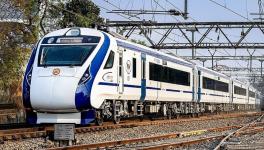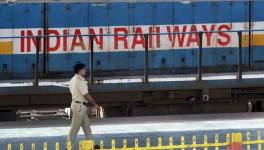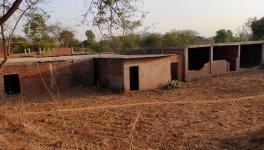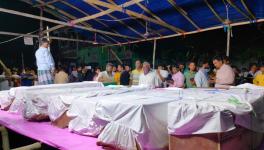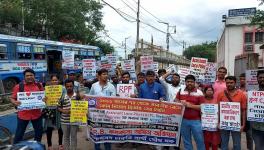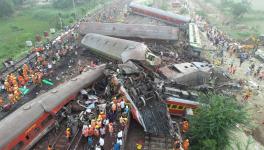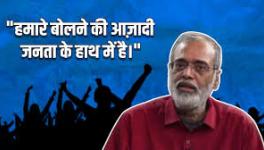To Stave Off Turf War, Railways to Create Two Corporate Giants, Not One
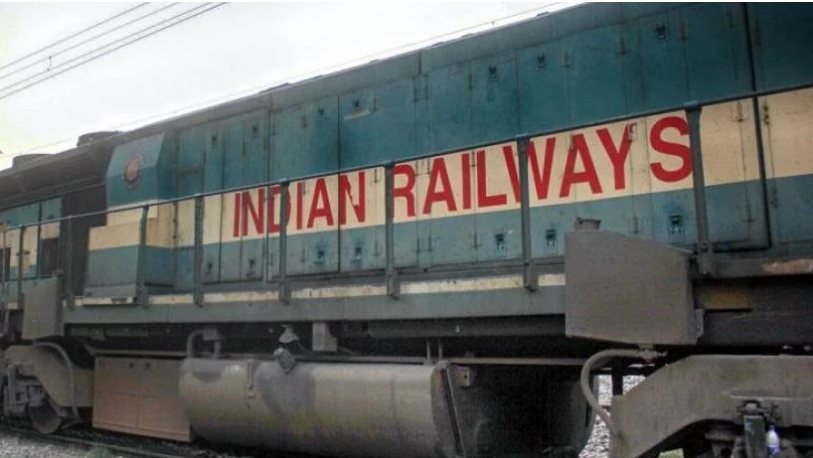
Representational Image. | Image Courtesy: Trak.in
Departmental rivalries have reached a new high in the Indian Railways, as has reversed its earlier corporatisation plan of eight production units forming one holding company, announced in the 100-day action agenda in June this year. Now, there will be two entities, not just one, involving Rs 20,000 crore, raising a question mark over the future of 45,000 employees which is at stake.
Instead of forming just one entity – the Indian Railway Rolling Stock Company -- another one will be hived off to be Indian Railway Motive Power Company, thanks to the intense turf war in the public behemoth.
While Indian Railway Rolling Stock Company (IRRSC) will manufacture coaches and wheel sets, Indian Railway Motive Power Company (IRMPC) is expected to produce locomotives. Manufacturing of coaches and wheel sets are largely under the mechanical department's domain and locomotive productions are under the electrical wing of Railways.
Though the Railways maintain that the consultancy firm engaged for preparing the feasibility report of the project recommended the setting up of two entities, insiders say this was done to insulate the project from departmental wrangles.
Since there is lack of synergy between coach manufacturers and loco producers, separating the two is the best option to enable wider market access, including state-of-the-art technology, promote exports and superior operational efficiency of these proposed holding companies, according to the Railways.
The national transporter had come up with a 100-day action plan in mid-June this year to corporatise eight production units and associated workshops under one entity, with an estimated annual turnover of Rs 19,451 crore and 45,036 workforce.
Currently, Indian Railways is paying Rs 3,129 crore as wage bill in a year for its eight production units. The staff strength is expected to reduce drastically once corporatisation takes place.
The proposal to form two entities will be put up before the Cabinet for its approval and currently an inter-ministerial note is being circulated for the purpose, according to sources.
There are three locomotive factories -- Chittaranjan Locomotive Works (CLW) in West Bengal with a workforce of 11,495, Diesel Loco Modernisation Works (DMW) in Punjab with staff strength of 3,664 and Diesel Loco Workshop in Uttar Pradesh with 6,109 employees – which will become one corporate entity, as per the proposed move.
CLW had produced 325 locos, while DMW and DLW manufactured 130 and 321 locos, respectively, in 2017-18.
The second proposed entity will see the merger of Integral Coach Factory (ICF) in Tamil Nadu, with 10,649 staff, Rail Coach Factory (RCF) in Punjab with 7,357 staff, Modern Coach Factory (MCF) with 2,402 staff strength, Rail Wheel Factory (RWF) in Karnataka with 2,370 employees and Rail Wheel Plant (RWP) in Bihar with 990 .
ICF has produced 2,397 coaches, RCF manufactured 1,251 coaches, 711 coaches by MCF, 1.2 lakh wheel sets by RWF and 13,880 wheel sets built by RWP in 2017-18 while paying Rs 1,764 crore annual wage bill.
The wage bill for all three loco production units is Rs 1,365 crore, with turnover of Rs 8,035 crore, while for coach and wheel set units have an annual turnover of Rs 11,417 crore and a Rs 1,764 crore wage bill.
Since Indian Railways is opting for 100% electrification and converting its diesel locos into electric mode, all these three loco units will be merged into one corporate unit and will be managed by the electrical wing of Indian Railways, according to sources.
Another corporatised unit will be of coaches and wheel sets, which is likely to be managed by the mechanical department.
The Indian Railways envisage that technology upgradation and automation will increase efficiency and it would be easier when it will be corporatised.
However, the corporatisation move was fiercely opposed by railway trade unions, as a large number of workforce is involved, especially at a time when jobs are hard to come following an economic slowdown.
Arun Kumar Das is a Delhi-based journalist. He can be contacted at [email protected].
Get the latest reports & analysis with people's perspective on Protests, movements & deep analytical videos, discussions of the current affairs in your Telegram app. Subscribe to NewsClick's Telegram channel & get Real-Time updates on stories, as they get published on our website.









